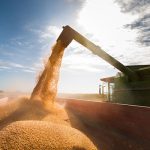Hard red spring wheat bids in Western Canada moved to their highest levels in three months during the week ended Oct. 10, as a firm tone in the United States futures and sharp weakness in the Canadian dollar provided support.





Progress hits 85 per cent complete





